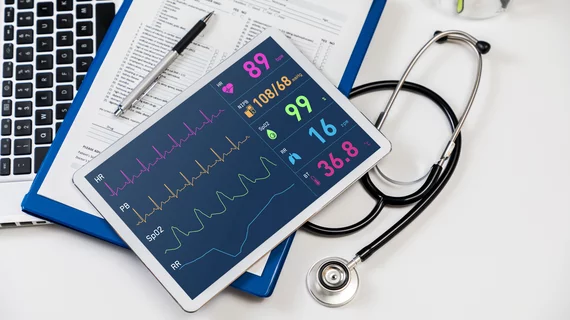The American Heart Association announced on Feb. 20 it launched a series of quick online reference tools for physicians and their patients who struggle with high blood pressure, including a list of four of the most common mistakes hypertensives can make on a daily basis.
Those four factors make up the AHA’s “BP Raisers” list, a one-page PDF that urges readers to “be your own health advocate” by taking steps to normalize their blood pressure. According to that document, the AHA suggests hypertensive patients do the following for the best health outcomes.
Mind over-the-counter meds
Painkillers like ibuprofen and naproxen are common and easily accessible medications, the AHA wrote, but they can also raise a person’s BP. The organization suggests physicians talk to their patients specifically about what they take to treat minor aches and pains, since a replacement painkiller like acetaminophen might be a safer bet for their overall health.
Decongestants are also known BP-raisers, according to the list, and anyone with a heart condition should limit or avoid them. Other drugs are tolerable on a case-by-case basis, but medications like antidepressants, corticosteroids, oral birth control, immunosuppressants and some cancer medications can take a toll on a patient’s BP.
Double-check your measurements
Patients who receive regular in-office BP readings should be double-checking those numbers at home to rule out white coat hypertension, the AHA said. In either case—whether measuring BP at the doctor’s office or at home—the organization urges patients to avoid cigarettes and caffeine for half an hour before the reading, empty their bladders and sit quietly for a few minutes to relax.
According to the AHA, a proper BP test involves a patient resting their arm at chest level while their feet are flat on the floor. There shouldn’t be any talking.
Avoid alcohol and caffeine
An excess of either causes high blood pressure, the AHA wrote. Most hypertensives should avoid caffeine altogether, and those who do consume coffee or soda should cap their intake at three cups per day. Alcohol should be limited to less than one drink a day for women and less than two drinks a day for men.
Second-guess your supplements
Not every “natural” home remedy or supplement is safe, the AHA warned, and in fact some of those approaches can raise a person’s BP or worsen their health. The organization recommends researching which supplements, like licorice, might affect blood pressure before consuming them.
Food and medication combinations can also have a negative effect, so patients should talk with their physicians about their daily routine and any supplements they might be taking that could interfere with the efficacy of their blood pressure medication or other medications. The AHA said strong cheeses, cured meats, soy products and other foods containing tyramine can negatively affect people taking antidepressants and monoamine-oxidase inhibitors.

